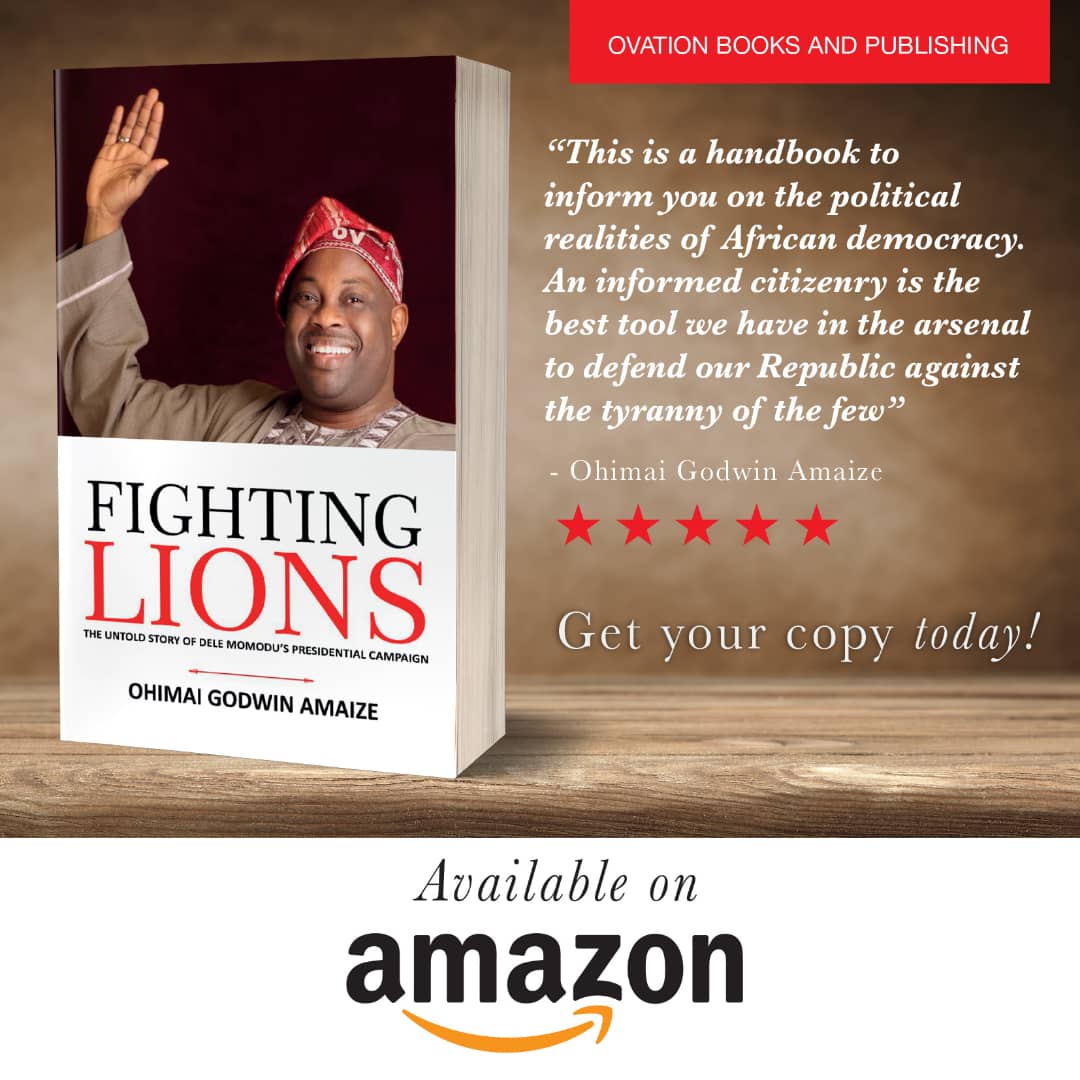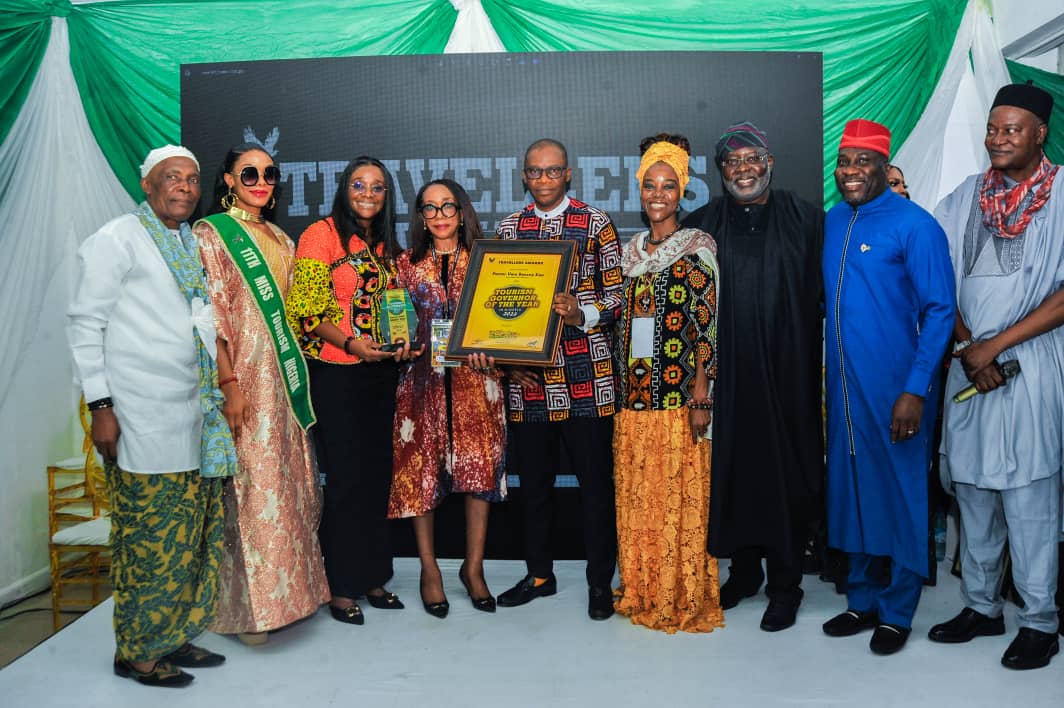By Abiodun Adeniyi
He has never hidden his reverence for the 13th Aare Ona Kakanfo of Yorubaland, Bashorun Moshood Abiola. He has severally celebrated the legendary multi-tasking ability of the late politician, just as he has nearly waxed songs about Abiola’s phenomenal energy, his native intelligence, his prowess with proverbs and his networking skills.
Abiola’s expertise in combining the past and the modern, the present and the absent, all in the pursuit of opening up the mind for better understanding of situations have not also been lost on him. As if a genetic protégé, he has been faithful to Abiola’s epistemic disposition, as he has been to his political and business philosophies.
It has been the path of foremost journalist, entrepreneur, writer and columnist, Dele Momodu, while bestriding the Shakespearean “straight and narrow path(s)” of existence.
The highlighted Abiola traits are interestingly coterminous with Momodu’s effervescent nature, his philosophic approaches and his apostolic drive for social change.
Check him out as well: He is at home with proverbs, especially of the Yoruba genre, just as he is naturally enlivening, besides penchants to radiate a positive verve, capable of melting even the hardest of the stones, just like Moshood Abiola.
Excited in the open, and at once humble at a closer range, Momodu exemplifies the textbook difference between the person in the public face and the one in the private face. Public impressions are constructed based on media portrayals, representations and posturing. They are moderated by closer contacts disproving or affirming presumptions, in the subtle back and forth world of the definition and discerning of reputation. While some may misunderstand Momodu in the distance as disinterested, he comes personable, witty, friendly, and humorous on closer approach.
Obviously experimental in nature and confident of the multiple traits he bears, just like his mentor Abiola, Momodu would no doubt go some more length in his strides. Also a Bashorun (of Oke-Ila), like Abiola (who was of Ibadan), he soon stepped onto the political space, angling for the topmost position in the land-the nation’s presidency; and again, like his mentor remarkably did.
The story of his foray into presidential politics is one capable of evoking mixed feelings. Was it audacious, well meaning, or adventurous? That seems some of the questions that Ohimai Godwin Amaize seeks to answer in the book “Fighting Lions: The Untold Story of Dele Momodu’s Presidential Campaign”
Amaize wrote from a vantage position. He was manager of Momodu’s presidential campaign when he ran for president in 2011. Technically a participant observer therefore, Amaize chronicled their campaign travels, tours and detours, from the point of view of an insider, and a witness to bravery, appointments and disappointments, pleasures and pains, downs and lows, aside the Janus face of man, coming after the Greek idol, with its especial temporality in gazing forward and backwards.
Himself a writer, journalist and new media enthusiast, Amaize did not just embark on a teleological rendition of the campaign experiences, but attempted to give meanings to their experiences, making deductions, doing reflections and reflexions, in a bid to situate the character of man within time and space, through the prism of the rambunctious Momodu.
In setting out from his “If not us…Who?”, as the first chapter is titled, Amaize underlined the thinking in town that political contestation is just for the other person-not for me! It should not be so in the ideal sense, which justifies the courage to come against the “lions” as Momodu did.
The writer in Momodu has countlessly made him to tell his own story of how he grew from Ife to Lagos, how he mutated from a budding writer to a celebrated editor and columnist and how he has extended his paths to pro-democracy activism, to exilic exploits, and then to the mission to serve. Momodu is ordinarily expressive and volunteering, believing that his experiences are good enough to motivate and to inspire, and that there is no price without process, no gains without losses, and no advantage without disadvantages.
It explains why Amaize did not dwell too much on “The Dele Momodu Story” and racing quickly to the question of “Who Says the Youth Can’t Lead”, where he challenged subtle narratives about the unpreparedness of the Nigerian youths to lead. The youth is often derided, albeit in hush, covert tongues, as a reluctant set, which cannot be trusted just yet. Even though there is no evidence for this, the impression is real, and evening up to a perception of neglect.
Using Momodu’s case, he argued that the youth are more than ready to lead, especially for their depth, their energy and the new world of innovation, where the world is essentially technology driven, and where the youths are playing a critical role. Momodu, he maintains, exemplifies not just that kind of youth oriented leadership, but one that can galvanize the youth towards nation building, as partly shown in his decision to choose him as his campaign manager, irrespective of his age.
Amaize then noted the place of the voters in the electioneering process, especially against the background of suspected elite cynicism. The elites, he regretted would be reluctant in backing the youth, or one who is not a member of the establishment. They would prefer an old order, where patterns and particularities are predictable, and where change will regrettably not come from.
Amaize revealed how the campaign was not reckoned with despite the towering image of Momodu, and how elites wrote off their chances, apriori, in what undermined the influence of the voters. They powered on, regardless, because “we were confident about one thing: it’s the voters who decide the outcome of elections, whether they vote or refuse to cast their votes” It is therefore a case of “It’s the Voters, Stupid”.
Other than elite cynicism were other shades of cynics, naysayers, and friends who felt the Momodu campaign was not a serious one. These set doubted he genuinely wanted to be president. They thought he was just out to shine, and to be counted. The more they tried to convince them the more they doubted them. Close friends left him to his cause. Mentors were circumspect, while fellow runners were suspicious. Rather than being discouraged, Momodu was rather encouraged.
He pushed and pushed, despite personalities, individuals, and parties’ betrayals, testifying to the thinking that you are what you want to be. Amaize captured this as much in use of the Charles Swindoll words: “The real tests of courage are much quieter. They are the inner tests, like remaining faithful when nobody’s looking, like enduring pain when the room is empty, like standing alone when you are misunderstood”
And determined to pull through the maze of doubts the campaigners knew they must deploy the tool of unity. They must be coordinated, integrated and inclusive. They were therefore concerned about ensuring supporters both at home and abroad spoke with a voice, moved in unison and assembled in as many centres as possible, towards the expression of their mission, vision and core objectives.
They no doubt did “Against All Odds” proving to the world that the campaign was not a joke, but a real interest in winning, in contributing to national growth and development. In the book, therefore, Amaize showed some of the downsides of the Nigerian system, revolving around the absence of belief, the nuance of faithlessness and the commodification of processes in a transactional arrangement that erodes values, virtues and a subscription to higher ideal.
He summed it thus: “It was an experience that forced our team to take a proper look at the critical factors that determine outcomes in Nigerian politics. We came to the disturbing conclusion that the very first factor was money. It was not policies, programmes or the people; it was money. The second factor was ethnicity; where you came from. The third factor was religion, and the fourth was popularity.”
Even so, Momodu was gratified that through the presidential contest, he became enriched, more informed and with a broader sense of perspective on things Nigeria. A practiced thinker on the Nigerian condition, he believes with the campaign experience, he is in a better stead to make quality, aposteriori submissions on the nation’s situations as seen through his columns, in interactions and in sundry media outings, consistent with his primary passion for social engineering.
Good book no doubt, Amaize has invited us to think along with them, in the manner the campaign did, but not before reading and digesting the thirteen-chapter text. Deserving of engagement, the literature is simply worth one’s time, even if the title “Fighting lions…” portrayed Momodu’s political travel as a combat, instead of the pursuit of a worthy cause. I will downplay that, anyway, and heartily recommend it to you. I hereby so do.
*Dr. Adeniyi, writer, public commentator and strategic and diasporic communication scholar, teaches Mass Communication at Baze University, Abuja.

 News6 years ago
News6 years ago
 Featured6 years ago
Featured6 years ago
 Boss Picks6 years ago
Boss Picks6 years ago
 Headline6 years ago
Headline6 years ago
 Headline6 years ago
Headline6 years ago
 Headline5 years ago
Headline5 years ago
 Headline6 years ago
Headline6 years ago
 Headline6 years ago
Headline6 years ago






















